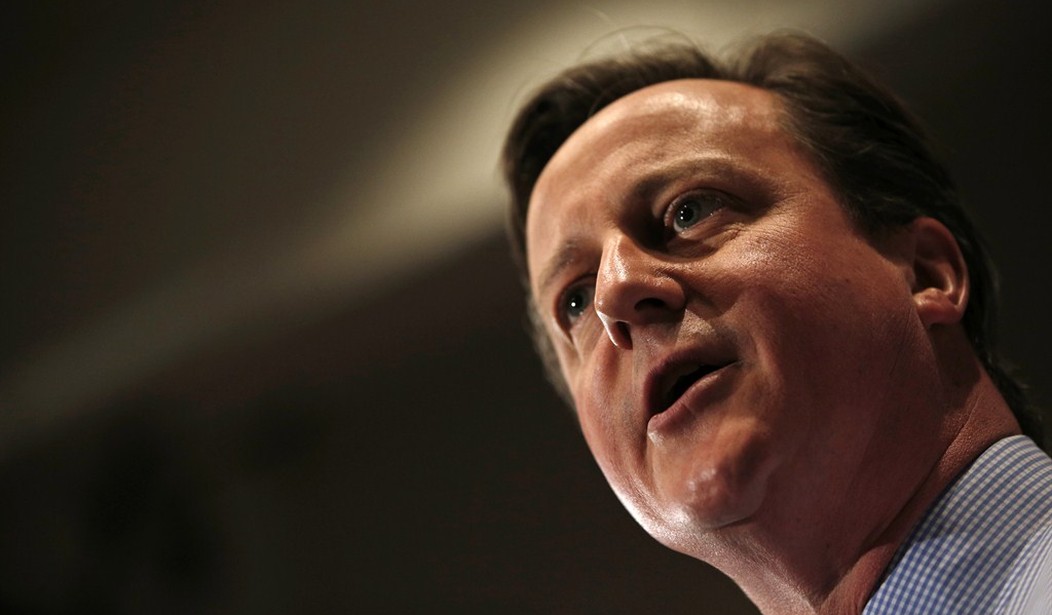Next week, Britain votes in its first general election in five years. Some aspects of its politics will be familiar to Americans. Polls show voters are dissatisfied with politicians of both parties, cynical about whether they will keep their promises and closely divided between two major parties, which have been in existence for more than 100 years.
But there are differences as well, in contrast to decades when British and American politics seemed to move in tandem -- the 1980s of Ronald Reagan and Margaret Thatcher, the 1990s of Bill Clinton's New Democrats and Tony Blair's New Labour.
The most vivid difference is that while American party politics is increasingly polarized, British party politics is increasingly fragmented. Americans, even if they like to say they're politically independent, increasingly vote faithfully for one party or the other. Many don't think kindly of those who vote the other way.
Both major parties in the United States have proved flexible enough to make room for protest movements, like Tea Party conservatives and redistributionist left-wingers. So American politics is polarized between two large parties supported by nearly all voters.
British politics used to be like that. In the 1951 general election, 97 percent of Britons voted either Conservative or Labour. In the May 2010 general election, that percentage was down to 65 percent, and neither major party got a majority in the House of Commons.
That led to a coalition government led by Conservative Prime Minister David Cameron with participation by the Liberal Democrats. The coalition produced noteworthy reforms of education and welfare. It cut public sector payrolls, which was followed not by the recession predicted by Keynesians, but by the fastest economic growth among developed countries and a labor force participation rate of 72 percent (compare that to 62 percent in the U.S.).
Recommended
These policy successes have not been so successful politically. The Lib Dems have lost at least half their voters, disappointed that the party didn't move left. And the Cameron Conservatives' embrace of environmental purism, renewable energy and same-sex marriage has moved many tradition-minded English voters to the United Kingdom Independence Party.
Ukip decries the high immigration encouraged by the 1997-2010 Labour governments and continuing today from Eastern Europe. It chafes under the increasing regulations and laws imposed by the largely undemocratic European Union in Brussels, despite widespread British opposition.
Ukip's rising poll numbers suggested it could siphon off votes from Conservatives in dozens of districts, blocking any chance they would increase the 308 seats they won in 2010 to a 326-seat-majority, and increasing the chance that the Labour Party under its leader Ed Miliband would win more seats and get first chance to form a government.
But now Labour faces a threat of its own from the Scottish Nationalist Party. It has itself at least partly to blame. Tony Blair encouraged Scottish separatism by creating a Scottish parliament to handle many internal policies, and the Scot Nats, hitherto a splinter, won a majority there in 2011.
They pushed successfully for a referendum on Scottish independence last September, which was defeated by only a 10-point margin. But this year, evidently, most of that 45 percent have switched from Labour to the SNP, so that Labor could lose 30 to 40 formerly safe seats.
Conservatives have been decrying the specter of a minority Labour government supported by the SNP, which seeks higher taxes and spending and another referendum on independence. It would indeed be odd for a party that wants to split a nation apart to have such enormous leverage in its government.
There are other splinter parties as well -- a Green Party that has one seat in the Commons, the Welsh Nationalists and the separate Northern Irish parties. The result is that a system, which for many years produced clear and broadly accepted decisions between crisp choices to head government, may result in no party receiving a majority for any possible government.
Who is to blame for this? You can blame voters for preferring the best over the good. You can also blame the elite leaders of the two parties, who risked alienating core supporters.
Ed Miliband, from London's trendy Hampstead, is paying for previous Labour leaders' stoking of Scottish separatism. The decision of David Cameron and his allies to make their party more acceptable to their Notting Hill neighbors has cost them allegiance from English old-timers.
Political polarization is decried by many well-intentioned political observers. But political fragmentation may be an even greater threat to good governance.

























Join the conversation as a VIP Member